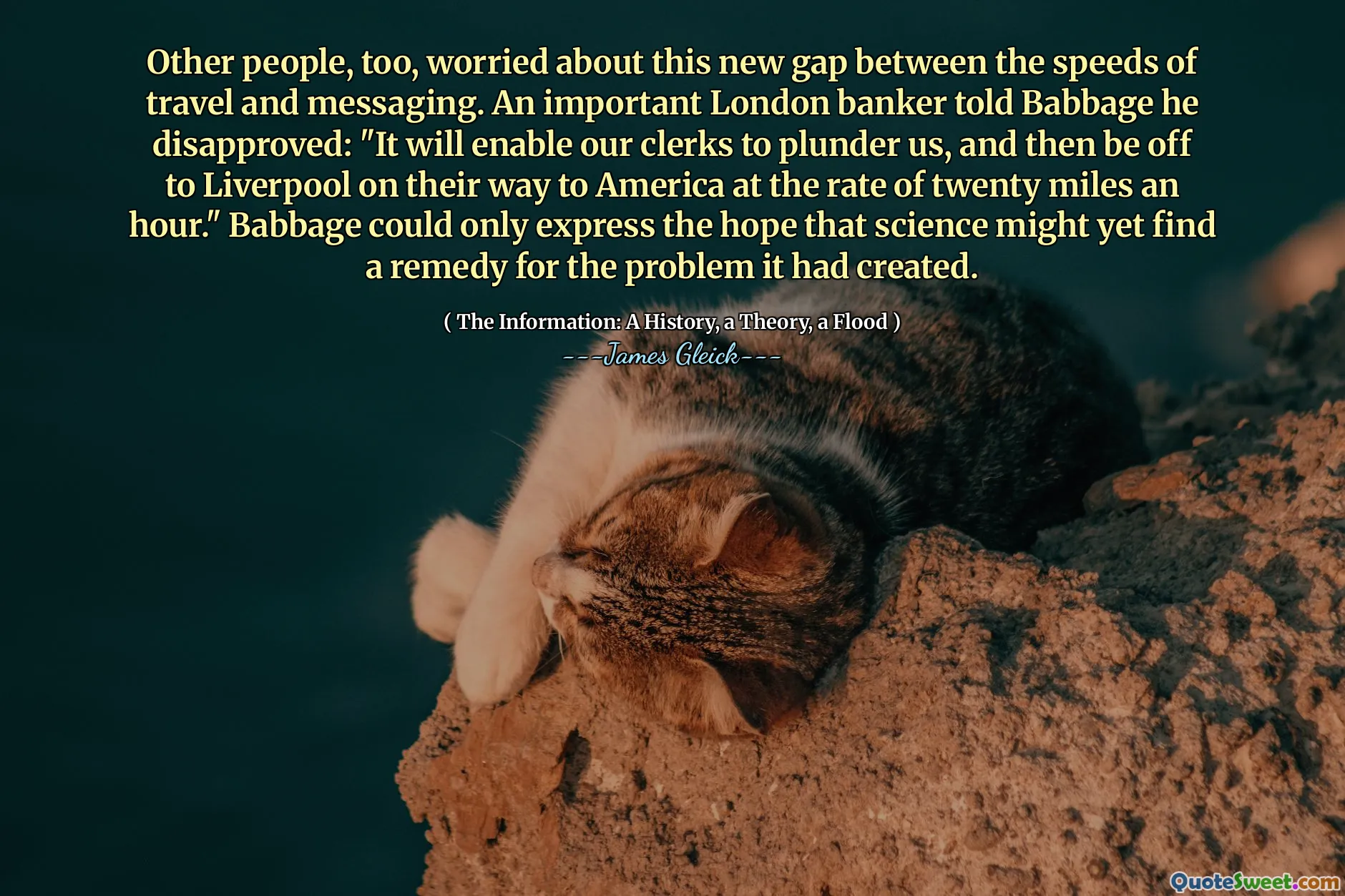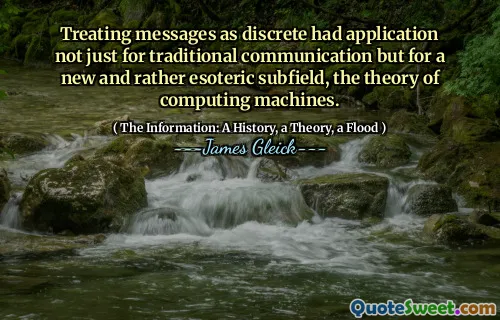
Other people, too, worried about this new gap between the speeds of travel and messaging. An important London banker told Babbage he disapproved: "It will enable our clerks to plunder us, and then be off to Liverpool on their way to America at the rate of twenty miles an hour." Babbage could only express the hope that science might yet find a remedy for the problem it had created.
This quote from James Gleick's 'The Information: A History, a Theory, a Flood' underscores early anxieties about technological progress and its impacts on society. The concern expressed by the London banker highlights a recurring theme: as communication and transportation methods accelerate, new vulnerabilities emerge. The banker fears that faster messaging could facilitate dishonest or exploitative behavior among clerks, who could quickly transfer funds or manipulate information before safeguards catch up. This reflects a broader societal trepidation in the face of rapid technological change—a tension between innovation's promise and its potential for misuse. The historical context here is crucial: during the infancy of the telegraph and steam-powered transportation, society struggled to comprehend how these advancements would reshape relationships, economy, and trust. Babbage’s hope that science might rectify these issues reveals an optimistic stance—that human ingenuity is capable of mitigating the dark sides of progress. This narrative remains profoundly relevant today, as we grapple with digital communication, cybersecurity, and data privacy. The rapid pace of technological change continues to challenge regulatory frameworks and societal norms. We often look back to moments like this quote to remind ourselves of our longstanding desire for harmony between innovation's benefits and its risks. It serves as a reminder that technological advancement often carries unintended consequences, and the ongoing quest is to find solutions that balance progress with responsibility, ensuring that technology serves humanity positively rather than becoming a tool for misdeeds.








